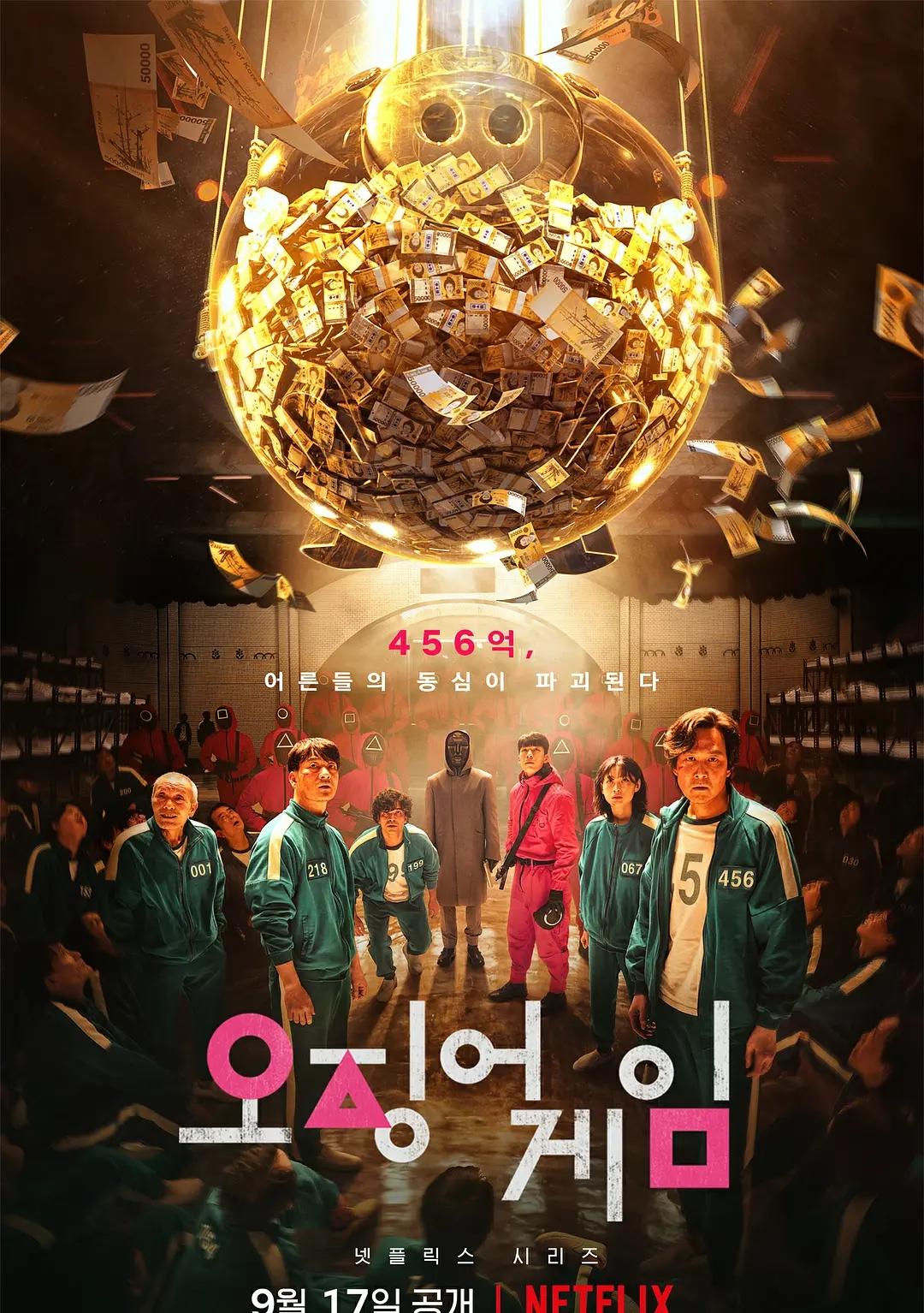Zhang Feng
Netflix's original Korean drama "Squid Game" has sparked a global discussion. This series that tells the story of South Korea, which has long been uninvolved because of "unrealistic" in South Korea, may now become the hottest series in Netflix's history.

Squid Game poster
The plot of "Squid Game" has distinct American drama characteristics. It tells the story of 456 players who receive a mysterious invitation to participate in a survival game on an isolated island. If the six rounds of the game are won, the winner can receive a prize of 45.6 billion won (about $39 million), while the loser will pay the price with his life.
The logic of the episode is based on "extreme scenarios". All the roles are marginal people: unemployed, unable to afford a mortgage, criminal record... Almost everyone is a real-life loser and a desperate person. Playing this deadly game is their only chance to turn over.
The male protagonist Cheng Qixun is even more typical. As a middle-aged man, his life was a mess: he couldn't afford to buy birthday presents for his daughter, couldn't pay his mother's medical bills, owed a bunch of debts, and even his wife left him. By all accounts, this is a typical middle-aged loser.
The original screenplay for Squid Games was formed in 2008. That year, South Korea was hit hard by the financial crisis, and many people's lives became difficult. Since then, the main creators have made several revisions to make the script more perfect and closer to reality. The version that aired, there are even elements of the epidemic appearing.
If the script creators originally wanted to "allude" to the reality of South Korea, the problems reflected in the script in the past decade or so have not been fundamentally solved, but have become more serious and clearer. The audience finds that it is not fiction, but a living reality.
Stills from Squid Games
In this way, the original concept of the show, like the Japanese movie "Battle Royale" of that year, used games and violent factors to achieve entertainment purposes, but eventually became a realist masterpiece: the audience found that not only could everyone be reduced to those marginal people with tragic fate in the play, but even among those people, they had found their own shadow. Many people lamented: If there is such a game in reality, I don't know how many people will participate.
The show's influence surpasses that of South Korea and the United States, and its popularity with global audiences shows that its story has a strong "universality": housing prices are getting higher and higher, and it is increasingly unlikely that young people will want to buy a house in a big city through their own efforts; in Seoul, it is very difficult for ordinary people to change their fate through honest labor and live a decent life - in fact, such a phenomenon, why not only in Seoul?
Huang Dong hyuk, the director and screenwriter of "The Squid Game", interpreted the play as a "contemporary capitalist story" and "to compete for life". Korean society does have extraordinary cruelty, and the problem of children's tuition that plagues Chinese parents has long been a big problem in South Korea; the sense of crisis and competition brought about by the "island geography" has filled Korean society with an additional sense of tension.
However, putting aside these unique "Korean characteristics", it can also be found that the story told by this drama is actually a problem faced by every developed economy: the economy is already highly developed, but due to the huge gap between rich and poor, most people feel tired, lost, and even desperate in life.
In Japan, for example, poverty among young people and poverty among women has also become a prominent social problem. In order to stimulate the economy, the government allowed "informal employment", which eventually aggravated the gap between the rich and the poor, so that more young people could not see hope, and some people had to do "nibbling on the old people" or "herbivores". The "lack of ambition" of young people has become a global problem.
In the end, either die (quietly waiting to die, or live a hopeless mess) or win 45.6 billion won, as in the play, became a secret fantasy of many people late at night. This story has a double metaphor, on the one hand, "failure is death", which is the psychological situation of most people; on the other hand, winning the grand prize, the salted fish turned over and lived a happy life, which is a kind of "final solution" that professionals can fantasize about.
In Chinese context, these two situations correspond to "lying flat" and "financial freedom" respectively. The former is a complete abandonment (hanging up in the game), and the latter is the ultimate expectation. These two extreme states are identical in their bones. Many people imagine nothing more than that once financially free, they will never work again and achieve another kind of "lying flat".
Young people "lying flat", or lying down to watch "Squid Game", is actually a silent expression: face up to the real problem, it is not just a TV series!
Designed by Wang Luyao
Editor-in-Charge: Gan Qiongfang
Proofreader: Ding Xiao